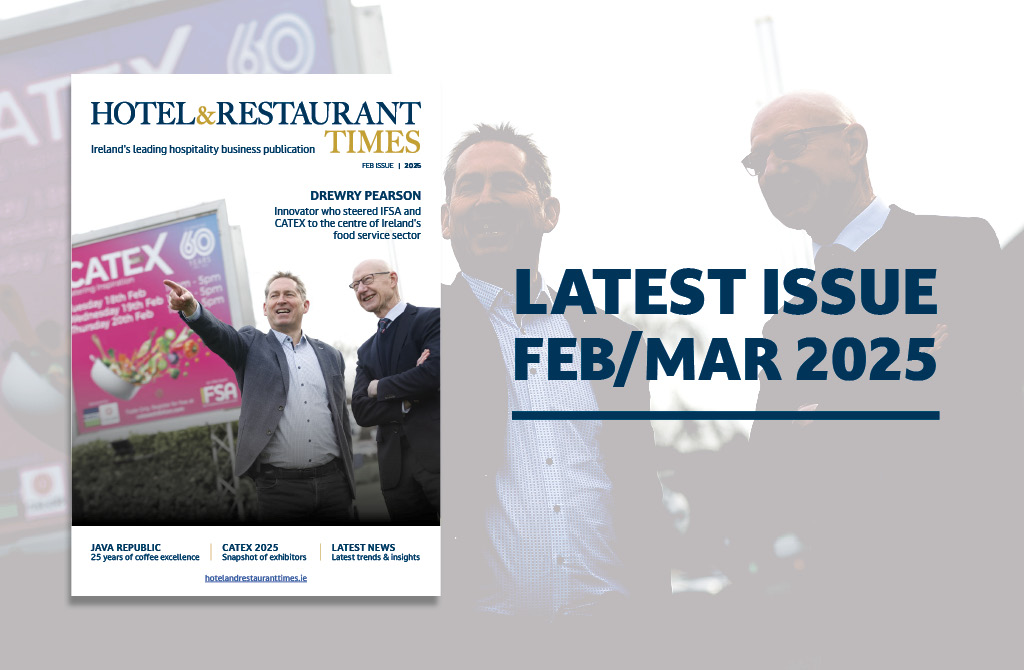
Urgent Action Required on Indoor Air Quality Standards Within Hotel and Hospitality Sectors Warns Expert
As the winter season fast approaches and tens of thousands of Irish people begin to return to the hotel and hospitality sectors, attention urgently needs to be shifted to recognising the critical role that air cleaning systems must play in indoor spaces in the fight against COVID-19 and other common respiratory winter viruses.
This is according to a leading scientific professor and researcher, Professor Azeem Majeed, who explains that cleaning the air in indoor spaces from potentially virus-laden aerosols will have significant benefits for individuals’ health and allow businesses in the trade to open safely and then stay open.
Professor Majeed, who is Head of the Department of Primary Care & Public Health at Imperial College London, is calling on government, regulators, property owners and employers to take on this responsibility and put the necessary standards and actions in place to ensure air-cleaning and ventilation systems in buildings are of a required standard and fit-for-purpose.
Commenting on his concerns, Professor Majeed said: “If government does not start taking indoor air filtration seriously, if the owners of indoor spaces across Ireland do not start taking air filtration seriously, it will derail many of the sacrifices that everyone has made in this fight against COVID-19 and will have a significant negative impact on the Irish economy.”
“Governments have regulations on the safety of food, sanitation and drinking water, but there is far less emphasis on monitoring and controlling pathogens in the air. Consideration needs to be given towards the introduction of more standards and legislation around air quality of buildings and the issuing of ‘ventilation certificates’ as proof of compliance.”
Professor Majeed believes that doing nothing when it comes to ensuring clean air for the users of indoor spaces will inevitably lead to further negative consequences, including continued waves of infections, hospitalisations and deaths; increasing levels of sick leave; and the associated loss of productivity, notwithstanding the substantial cost to the economy.
Philip Dowds, managing director and founder of Irish family-owned smart buildings specialist OKTO, with offices in Dublin, Belfast and London, says he has seen a surge of enquiries for its air quality management solutions from companies looking to identify the most appropriate air-filtration solutions for their indoor spaces.
The company’s OKTO air suite of products include a range of technology for improving wellness solutions for hotels and hospitality/entertainment venues, retail, houses, public buildings and offices, from touchless controls, circadian lighting and social distancing management through to advanced air filtration and fully fitted artificial intelligence (AI) air quality management systems.
“The risk of infection is substantial in poorly ventilated rooms. Diluting concentrations of respiratory particles through ventilation is second to removing them altogether from the ambient air,” he says. “Medical grade Disinfecting Filtration Systems (DFS) can help combat the spread of airborne viruses and improve health and safety, providing a 99.99% efficiency rate on all pollutants down to .007 microns (COVID measures between 0.6 and 0.14 microns), providing fresh clean air to any indoor space.”
Dowds says that these systems can be provided in both portable units for single room spaces and/or as part of a fully fitted air ventilation and filtration system scalable up to 1 million sq.ft
Following the Irish Government’s recent announcement setting out its roadmap for reducing current restrictions and opening up the economy, Ireland will inevitably experience a surge of people gathering in various indoor spaces, from workplaces, bars and restaurants, nightclubs and hotels to schools and universities.
Despite a successful rollout of the vaccination programme and a reduction in the number of deaths from COVID-19 and people getting seriously sick, infection rates remain high and vaccinated people can still become infected and infect others, sometimes leading to a serious illness.
These developments also coincide with a change in seasons, temperatures falling and people spending more time indoors. With colder weather on the way, opening windows for natural ventilation will not be practical for many, leading to increasing risks with airborne transmission of COVID-19 and other viruses such as flu and respiratory diseases.
“Coronavirus can be detected in the air up to three hours after emission, making it vital that owners and operators of indoor spaces where people gather review their ventilation and filtration systems to minimise the risk of COVID-19 transmission in their building and stop infection hotspots from occurring,” Dowds says.
Dowds says that its OKTOair suite of products were fast-tracked because of COVID-19 and the need to create controlled, safe and healthy spaces that reassure people, helping in the return to work across multiple sectors, including education, hospitality, events and property development.
“Testing on OKTO’s Disinfecting Filtration System has proven to remove a proxy virus for SAR Cov.2 (the virus that causes COVID-19) from the air within 10 minutes and 100% within 45 minutes,” he explained.
“Vaccination is essential in curtailing the impact of COVID-19 but improving air quality is also needed”. When sourcing solutions for air cleaning technology, Dowds says it is critical that detailed due diligence is carried out for any air cleaning technology being considered, with a glut of products and offerings in the market but that not all are as effective as required.
“Our DFS technology has been independently tested to be among the most effective air cleaning systems in the world, exceeding the European Standard EN1822 for HEPA filter devices and are completely chemical and ozone free. Over 1.3m units of this DFS product have been sold worldwide including installations at the recent Olympics in Toyko, Japan,” he says.












